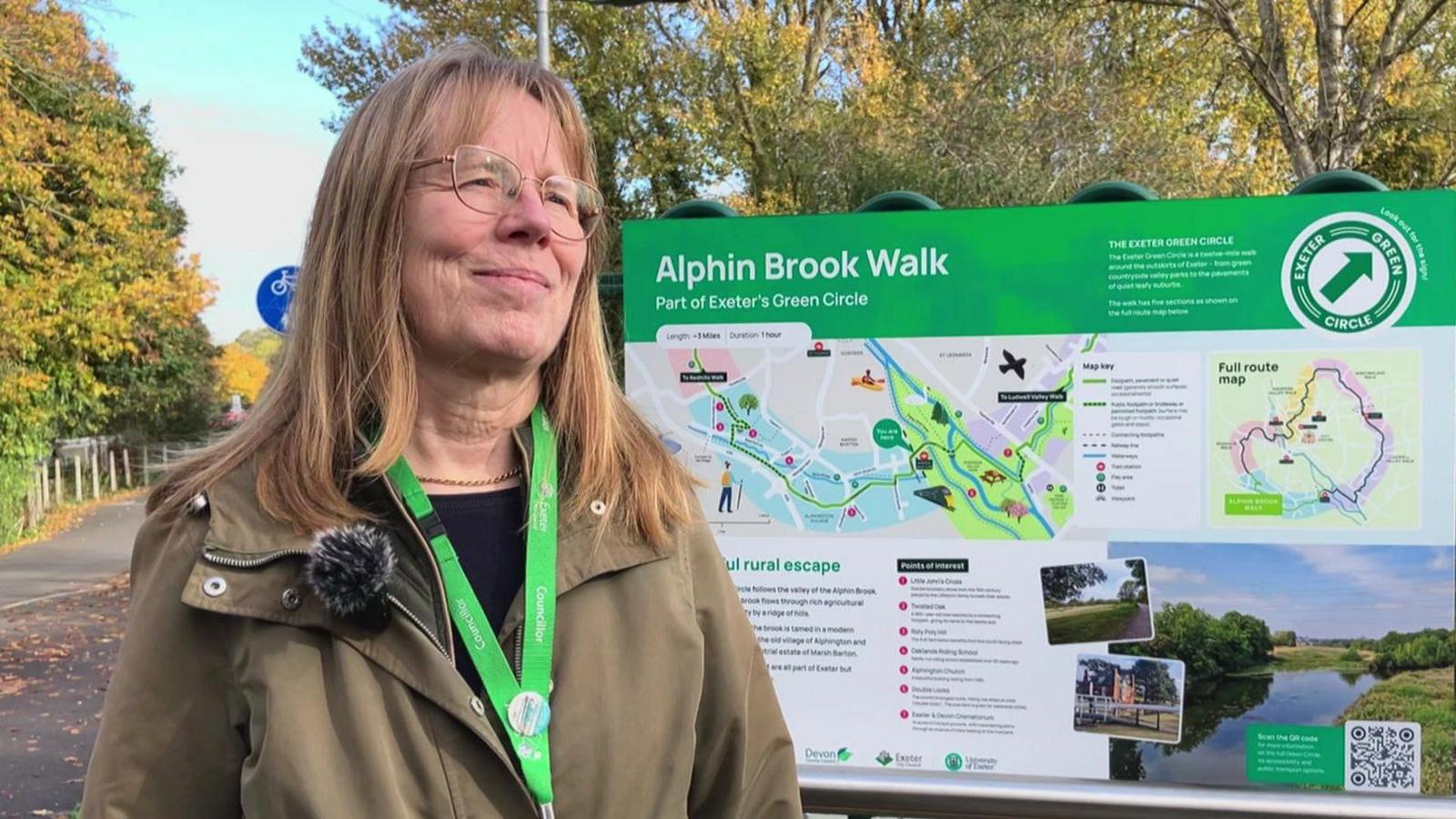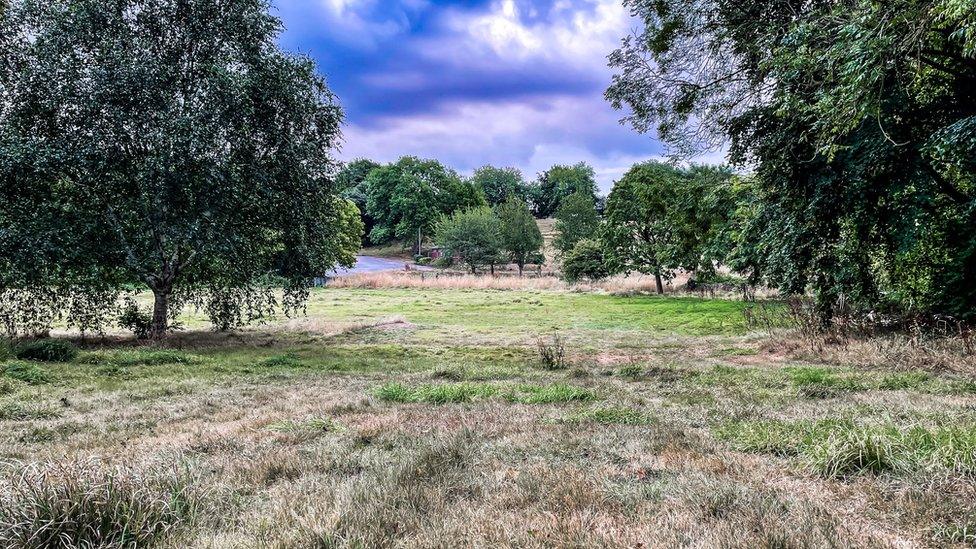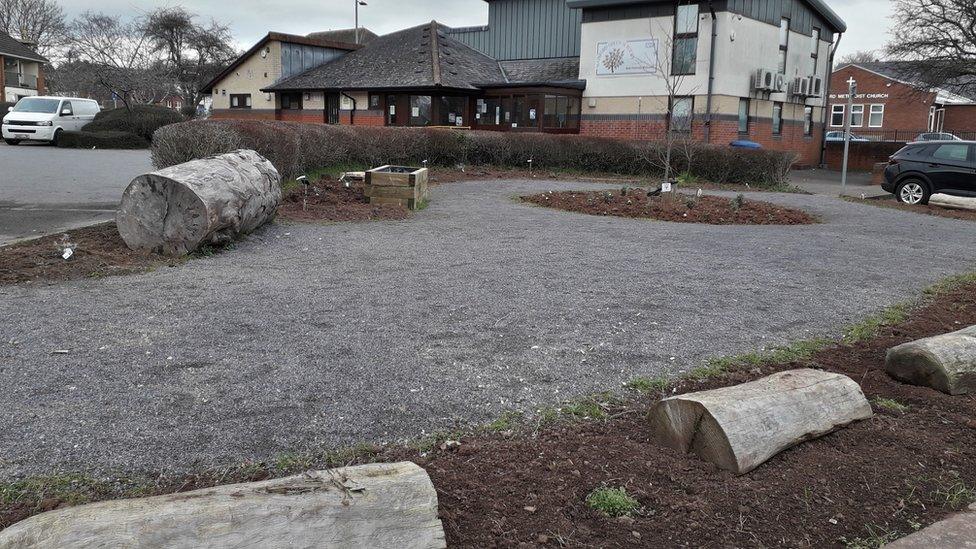People encouraged to explore green spaces by train

Councillor Ruth Williams said the project provided an opportunity for everyone to enjoy Exeter's green space
- Published
A campaign to encourage people to explore a city's green spaces by train is under way.
The Green Circle project in Exeter is part of the Railway 200 celebrations - marking the 200th anniversary of the modern railway.
It aims to raise awareness of how Exeter St Davids, Marsh Barton and Polsloe Bridge stations can be used as green gateways to explore the city's parkland spaces.
Ruth Williams, Exeter city councillor, who is responsible for city management, said the project was an "opportunity for all Exeter residents and visitors to enjoy the wonderful green spaces which surround the city".

Exeter City Council and GWR are promoting the city's Green Circle and accessing it by train
Williams hopes people will use the railways stations to "hop off a train, and then go for a walk or a stroll".
She said the Green Circle offered "woods, to valleys, to rivers - fantastic places which people already enjoy".
The partnership for the project involves Great Western Railway, Devon Wildlife Trust, Devon County Council, the University of Exeter and Exeter City Council.

David Whiteway from GWR said Exeter had more stations per head of population than any other UK city"
David Whiteway, Great Western Railway's regional development manager, said the firm had a community fund, which provided money for projects, which included the Green Circle.
Mr Whiteway said the Green Circle was successful in the bid because it "provides a brilliant way for improving access for people walking, and cycling to their stations".
He added Exeter was unique because it had more railways per head of the population than any other city in the UK - with 10 within the city boundary.
Follow BBC Devon on X, external, Facebook, external and Instagram, external. Send your story ideas to spotlight@bbc.co.uk, external.
Related topics
Related stories
- Published10 February 2024

- Published17 March 2022
